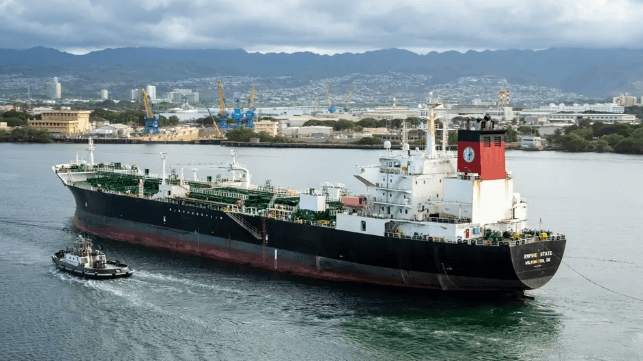HAWAII
Two Years After Spill, Navy Prepares to Defuel Red Hill Tank Farm

After extensive preparation and repairs, the U.S. Navy's Red Hill Bulk Fuel Storage facility at Pearl Harbor is ready to perform the mission it was designed to do: load millions of gallons of fuel onto a ship. The facility has been fixed and improved so that the service can carry out this task one last time, then close it down.
In November 2021, the WWII-era Red Hill facility suffered a 19,000-gallon fuel spill that contaminated the drinking water supply for about 93,000 American soldiers, sailors and family members at Base Pearl Harbor-Hickam. At least 2,000 people reported that they were sickened by fuel in water, more than 850 sought medical treatment, and at least 17 people said they were hospitalized overnight, Hawaii's Department of Health found in a survey. At least 1,600 people have filed suit against the government for damages, and more plaintiffs are expected.
In the political outcry that followed the spill, the Pentagon was faced with a choice: It could voluntarily shut down Red Hill, or Hawaii's congressional delegation would attempt to close Red Hill via legislation. Rather than continue the fight, Secretary of Defense Lloyd Austin signaled that the military would support defueling in March 2022.
Hawaii's Department of Health required the Navy to make 253 repairs to Red Hill's systems before giving it a permit to drain the remaining 100 million gallons of fuel. When ready, the Navy will operate Red Hill as it was designed: the fuel will flow downhill through transfer pipes by gravity to a loading manifold in Pearl Harbor, where it will be loaded onto an awaiting ship. This time, the ship will be a commercial tanker rather than a fleet oiler or a warship. The defueling is scheduled to begin Monday.
"The Navy realizes especially that they need to have the confidence of the community restored as far as their actions. So, they are very aware of the need to do this safely and with integrity and disclosing everything that they’re doing," said Sen. Mazie Hirono (D-HI) in an interview with local media. "At the same time, let’s make sure that we’re not just dealing with the defueling but the aftermath of defueling and the closure that’s still going to require resources. Defueling itself is going to be a billion-dollar process."
No comments:
Post a Comment